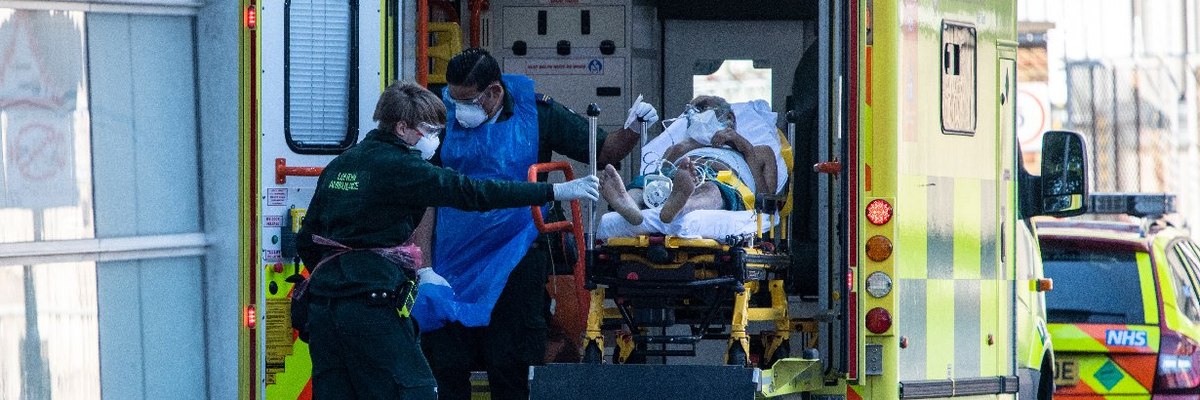YouGov asks the public how they think the Government should be bringing us out of the coronavirus lockdown
It seems that we have reached the peak of the coronavirus curve, and the conversation is naturally turning to the so called “exit strategy”. That is, how does the Government begin to reverse the unprecedented lockdown measures it has put in place to stop the spread of the virus.
Just as during the introduction of the measures, the Government will be working to keep the public onside as they are relaxed. This could end up being an even more difficult challenge.
The public have been more comfortable than expected about the mass disruption to their daily lives. While this was helpful to the Government in the early stages of the outbreak, allowing it to put in place the tough measures, it could cause them some difficulties later if there is a perception that restrictions are being loosened too quickly.
In terms of timings, just 5% think that it is now the right moment to start loosening measures, compared to 88% who think that it’s the wrong time. If you ask about a moment in time three weeks from now, the timeframe the Government is rumoured to be working towards, just 30% think that it would then be the right time, compared to 26% who think it would be the wrong time. The remaining 44% say they don’t know.
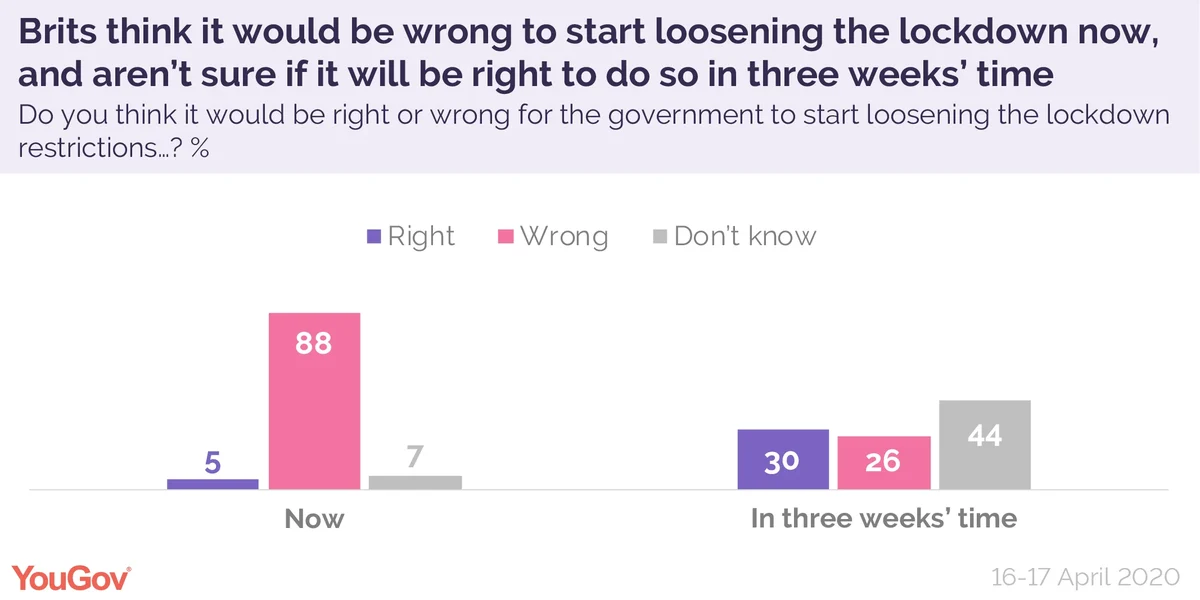
The reason for the high levels of uncertainty is that many will be making a decision based on criteria rather than timings, and we don’t yet know what the situations will be in three weeks. When asked about what specific criteria the Government should use in order to decide when to start removing restrictions, the median view was that it should not happen until there has been a substantial fall in the number of daily deaths (selected by 32% of respondents).
However, a further 37% took an even tougher line, thinking the Government should wait until there were no new cases at all being reported (13%), until we have the antibodies tests easily available (18%) or even until a vaccine is available (6%).
The process should be gradual, prioritising opening schools
In terms of process, there is a broad consensus among the public that we should start to loosen restrictions gradually (74%) rather than all at once (18%).
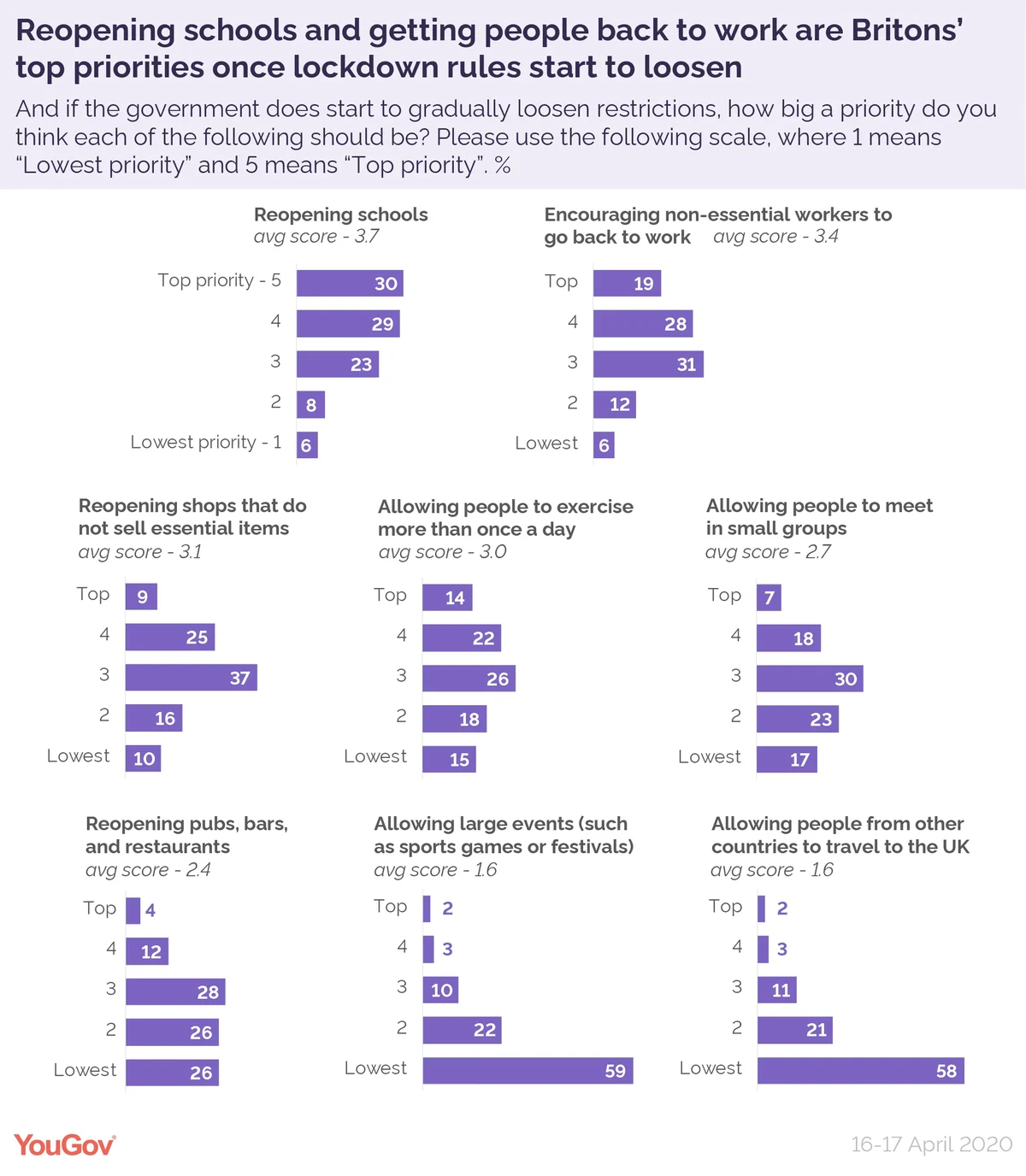
Given this, we also asked people what they wanted to be prioritised in these gradual loosening of restrictions. Top of the list was reopening schools, followed by encouraging non-essential workers to go back to work, which 19% thought was a top priority, as well as reopening shops that do not sell essential items (e.g. clothes stores or hairdressers).
More broadly, the public wanted the Government to prioritise “helping the economy by allowing more people to go back to work” (78%) over “giving people more freedom to leave their house in their free time” (14%).
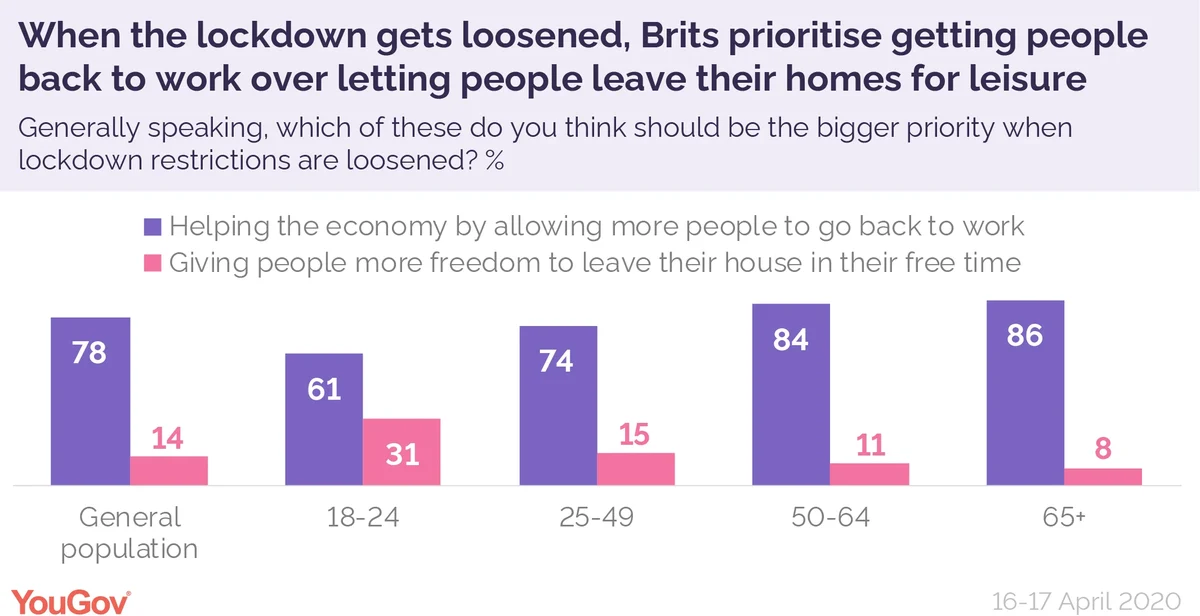
Therefore it is not surprising that activities that would generally fall more into the latter group, such as allowing people to meet in small groups, allowing large events (such as sports games, or festivals); or reopening pubs, bars, and restaurants are at the bottom of people’s priorities list.
However, there are large age differences on this, with 18 to 24 year olds being four times more likely than those over 65 to want to prioritise giving people more freedom than helping the economy (31% to 8%). They are also more likely to list allowing people to meet in small groups as a top priority, by 13% to 5%.
It would be unfair to yet the young out first
Some have also floated the idea of losing restrictions at different speeds to different groups. There is broad support for doing so for people who have already had the virus, with twice as many people thinking it is the right thing to do (52%) than the wrong thing to do (24%).
There is also support for doing so for people who live in less effected parts of the country (47% to 33%), and people who work for the NHS (56% to 24%).
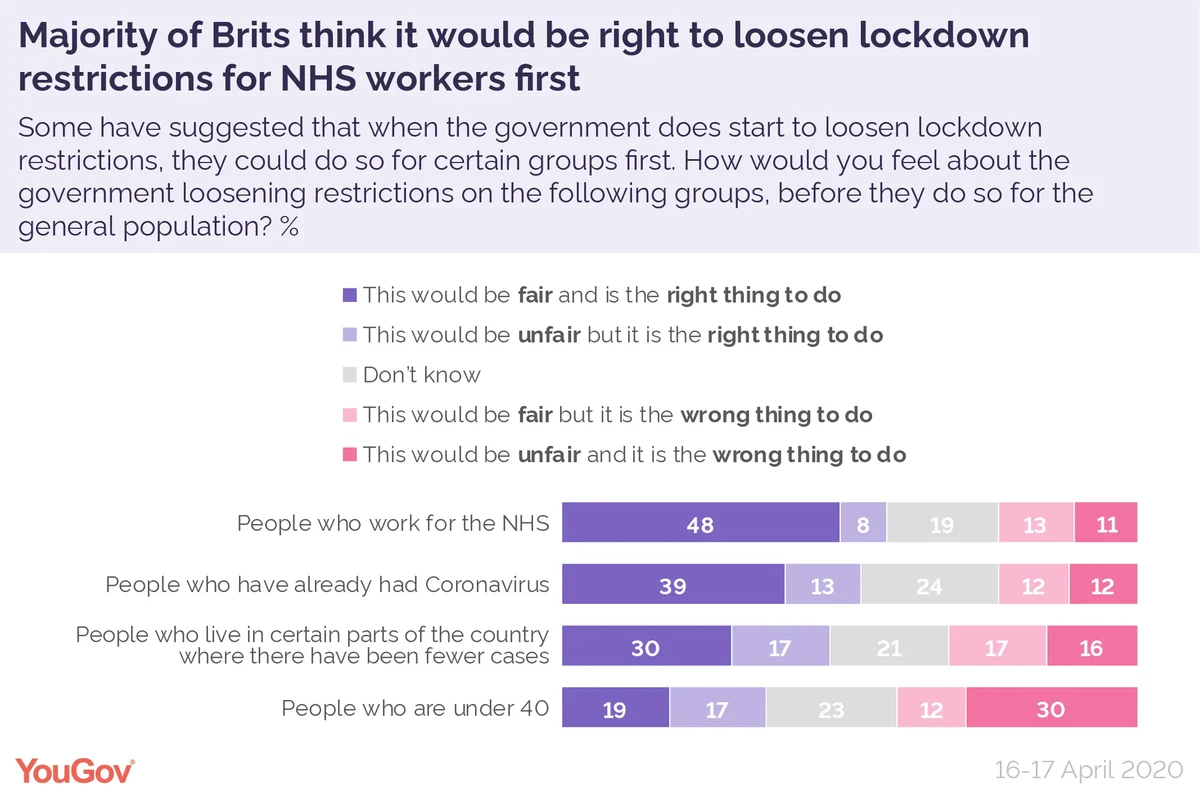
However, people currently oppose loosening restricting for the under 40s first, with 42% of people thinking this is the wrong thing to do, compared to 36% who think it would be the right thing to do. Nearly half (47%) also think this would be unfair, compared to just 31% who think it would be fair.
Overall, the data shows a public who are very cautious about loosening restrictions, and thing it should be done slowly and gradually, albeit in ways that will help the economy to rebound. This presents a key challenge to the Government, who risk alienating the public they have done a good job at keeping on board if they move too fast.
